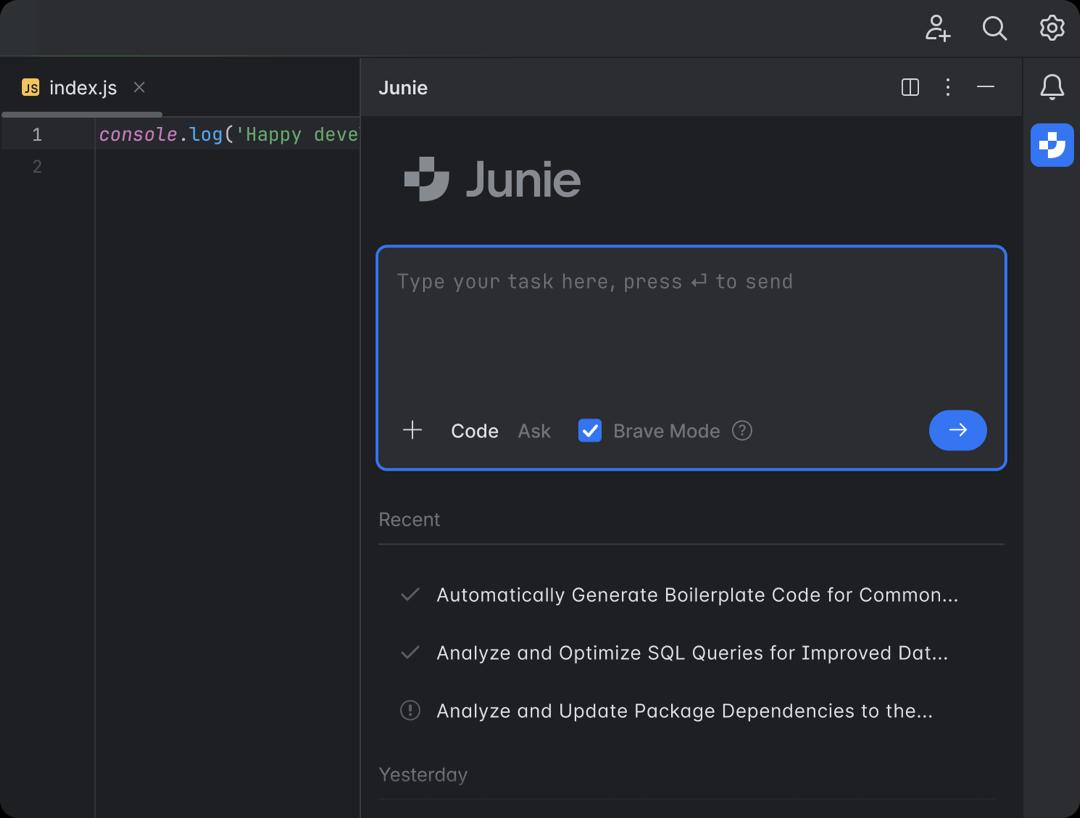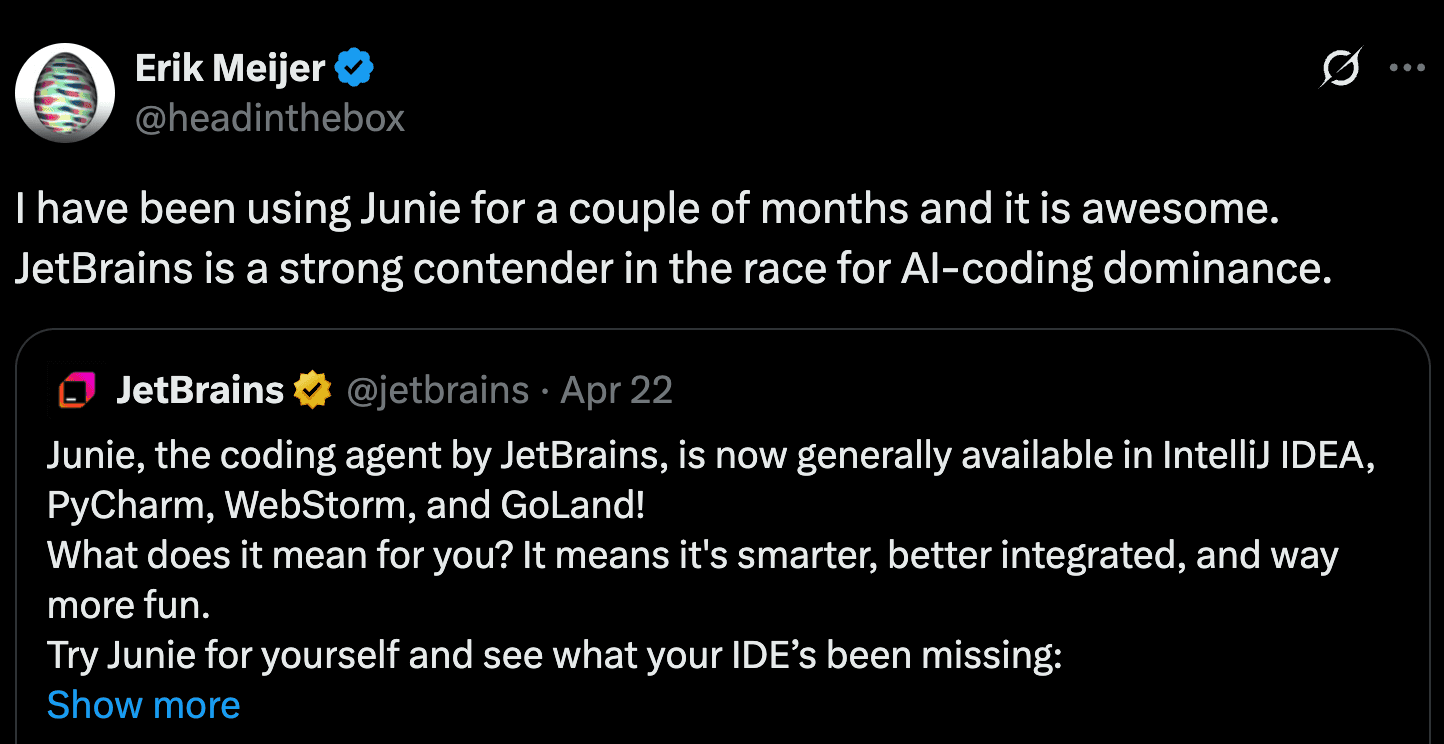
JetBrains has officially launched Junie, an “agentic AI” coding assistant fully integrated into some of JetBrains’ suite of IDEs, including IntelliJ IDEA, PyCharm, WebStorm, and GoLand.

For those accustomed to the more typical code-completion tools (such as JetBrains AI Assistant), Junie leans more into the autonomous code generation by handling multi-step development tasks without human interaction. These may include implementing a new feature or fixing a bug across multiple files in your project. You may want to generate a comprehensive set of tests for your code, or update documentation based on your code changes. To use Junie, you simply tell it what you need, akin to the way you’d use a Vercel v0 or bolt.new workflow. Junie interprets natural language instructions directly within the IDE, giving a more powerful assistant experience within an existing JetBrains development environment, many of whom are not only very familiar with, but extremely loyal to.
Junie will, of course, particularly appeal to those who already spend way too many hours amongst the popular JetBrains IDEs. It hasn’t yet rolled out across all flavours of their IDE suite, with only four being able to use Junie today. However, support sounds like it’s coming out on the others soon, based on Reddit posts from JetBrains’ employees.
If you enjoy using the JetBrains AI Assistant but want a more autonomous experience, Junie could be a good option to try out. If you have a JetBrains AI Assistant license, it’s easy to try Junie, since it’s included as part of the JetBrains AI subscription package available to all JetBrains IDE users. When you install the AI Assistant plugin and activate your license, you will also install Junie, if available, in your IDE.
Based on the user feedback we’ve seen from the community, if you’re a JetBrains fan, you should at the minimum keep an eye on it, as initial feedback looks to be promising. At such an early stage of release, I wouldn’t bet against the JetBrains team being very competitive in this space.
Developer communities have voiced mixed yet notably enthusiastic reactions toward Junie’s release. Which, to be honest, is surprising, given how long other tools have been available.
Erik Meijer (a deep computer scientist who is known most for his work in functional programming, across C#, LINQ, and much more), was highly positive about Junie having played with it from the early access builds.

He goes on to point out that a way tools get success is via adoption. Being familiar and already having loyalty, particularly with the Java, PHP folks and many other developer ecosystems is a big value for JetBrains.
Some experiences are less flattering, although there’s a lot of faith in the past delivery of the company and products that suggest people are prepared to wait it out and give Junie a chance to improve, which is key to the success of any product, particularly those in the AI dev space that need to evolve so quickly.

An opinion that was repeatedly voiced by the community was the need for speed. However, unlike a coding assistant that you use line by line, it’s typically more acceptable to spend more time on a more automated task, than something more manual, like code completion, that you want to interact with many times a minute, line by line.

Personally, I've high hopes and expectations for Junie for several reasons that we’ve mentioned in this post already. Firstly, the JetBrains team not only has a stellar record and reputation for developer tools, but it feels like a matter of time before they’ll achieve widespread adoption with Junie. Secondly, they already have a user base existing in the IDE in which Junie runs. The lift to get both the AI Assistant and Junie up and running is trivial.
It will be interesting to see how future AI development changes the IDE space. Currently, JetBrains maintains multiple IDEs, each focused on its specific ecosystem. IntelliJ IDEA for Java, PyCharm for Python, and so on. How does this fit in a world where code is less of an interesting artifact? Junie automates a significant portion of the code generation process, further separating us from the code. The more you use it, in fact, the less you refer to the code. In a world where this focus shifts, and as an LLM doesn’t particularly care about the language it creates?
Will we only need one IDE in the future, and what will it look like?